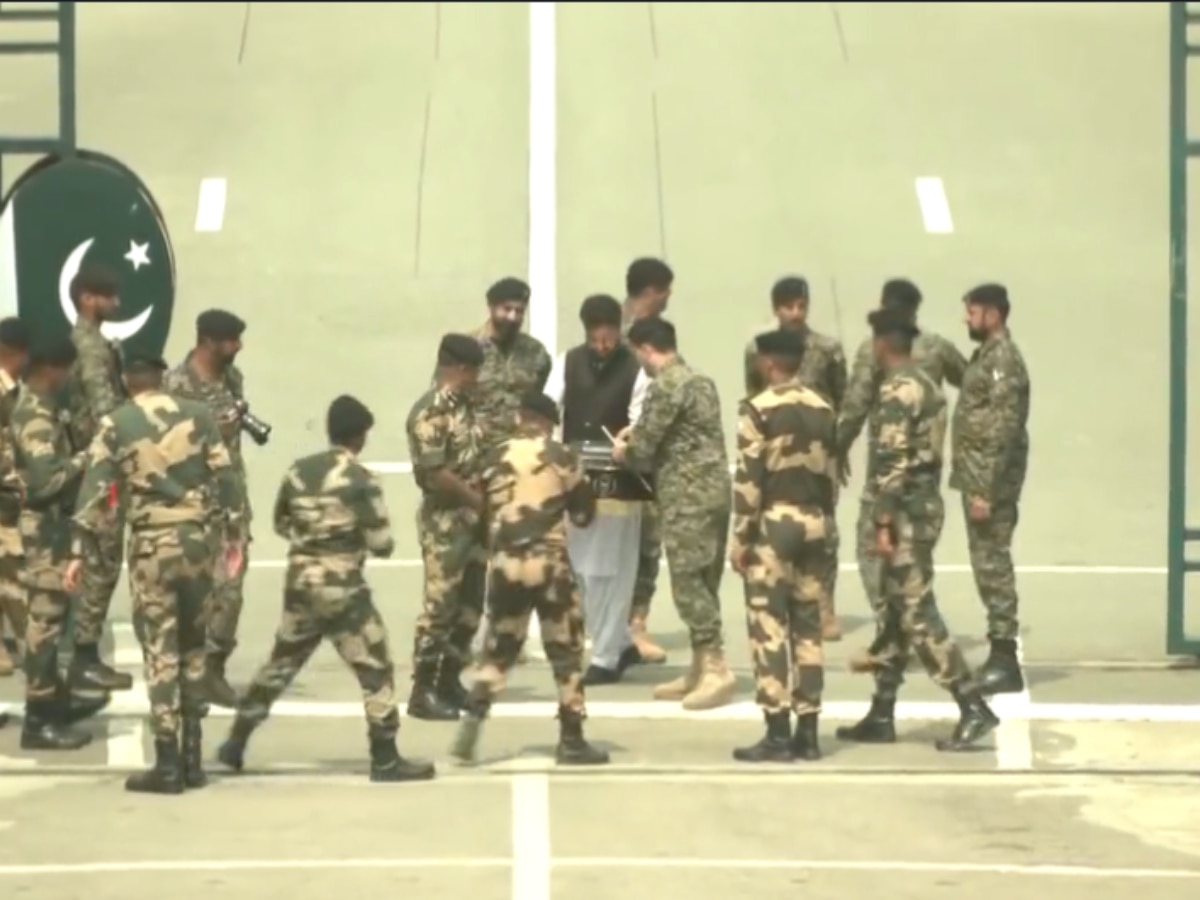On the occasion of Eid al-Adha or Bakri Eid, India’s Border Security Force (BSF) and Pakistan Rangers exchanged sweets along the Attari-Wagah border. This tradition is usually followed during festivals as a symbol of peace and goodwill. For the ceremony, the gates at the Attari-Wagah border checkpoint are opened and troops from both sides greet each other by shaking hands. They then offer sweets to each other.
Prime Minister Narendra Modi also extended greetings today and said that the festival reminds us of the values of "sacrifice, compassion, and brotherhood, which are essential in building a peaceful and inclusive world that we all aspire for".
President Droupadi Murmu shared her wishes and emphasized the need to work towards spreading mutual brotherhood and harmony in the society. “This festival inspires us to follow the path of sacrifice and selfless service to humanity. On this day, let all of us take a pledge to work towards spreading mutual brotherhood and harmony in the society," said the President in her message.
Earlier this month, Pakistan released 200 Indian fishermen who had crossed into Pakistan through territorial waters in the Arabian Sea. The fishermen were handed over to BSF at the joint checkpost at the Attari-Wagah border.
Why Is Bakri Eid Celebrated?
Bakri Eid, also known as Eid al-Adha or the Festival of Sacrifice, is a significant Islamic festival celebrated by Muslims worldwide. It commemorates the willingness of Prophet Ibrahim (Abraham) to sacrifice his son as an act of obedience to God's command. However, just as Ibrahim was about to sacrifice his son, God provided a lamb to be sacrificed instead, signifying his approval and intervention.
Bakri Eid is observed on the 10th day of the Islamic month of Dhul Hijjah, following the completion of Hajj, the annual pilgrimage to Mecca. It is a time of joy, gratitude, and reflection for Muslims. The festival serves as a reminder of Ibrahim's unwavering faith and submission to God's will.
During Bakri Eid, Muslims perform the ritual of qurbani, which involves the sacrifice of an animal, typically a goat, sheep, cow, or camel. The meat from the sacrificed animal is then divided into three parts: one-third is given to the poor and needy, one-third is shared with friends and relatives, and the remaining portion is retained for personal consumption. This act of sacrifice symbolizes generosity, sharing, and the importance of helping those in need.


